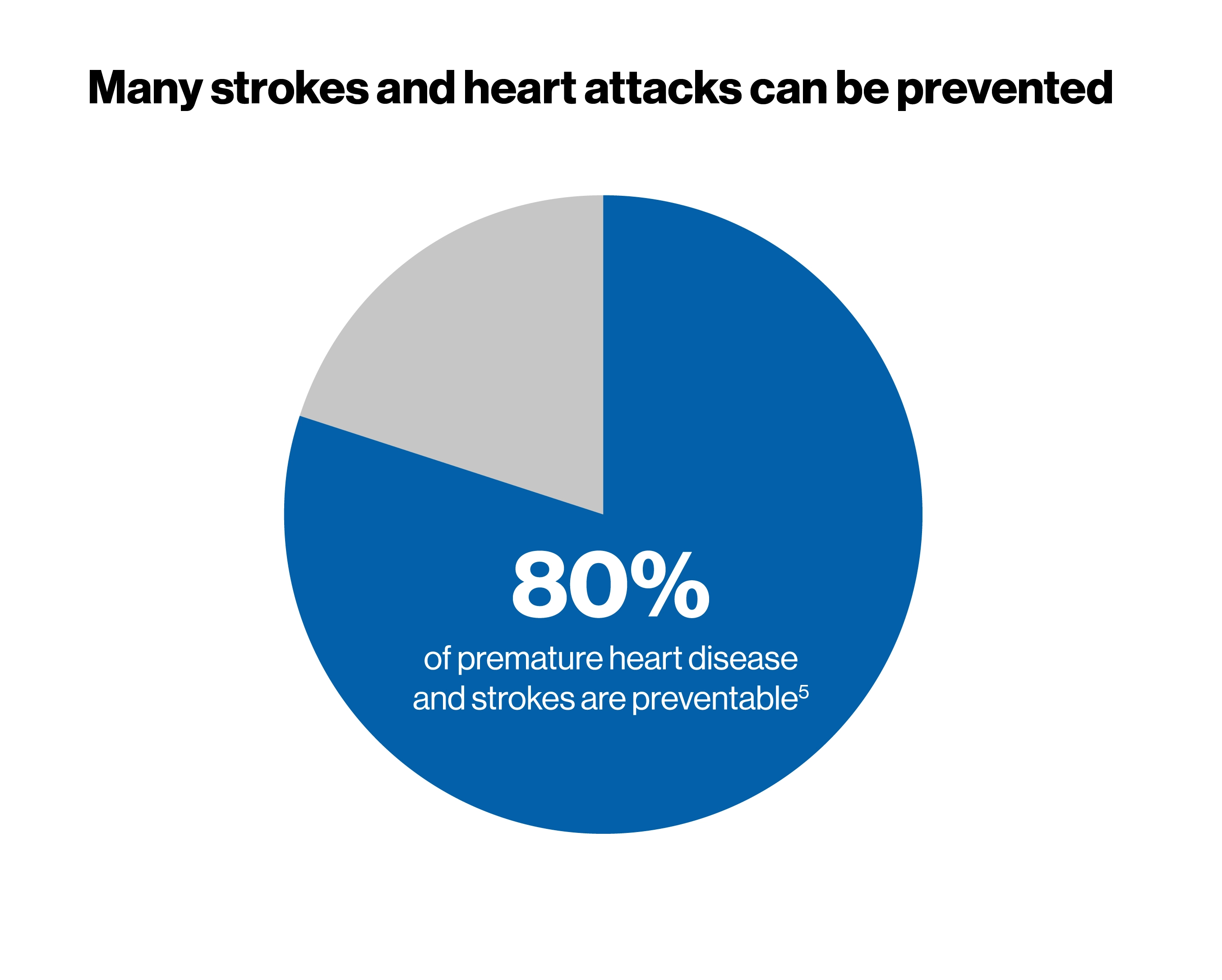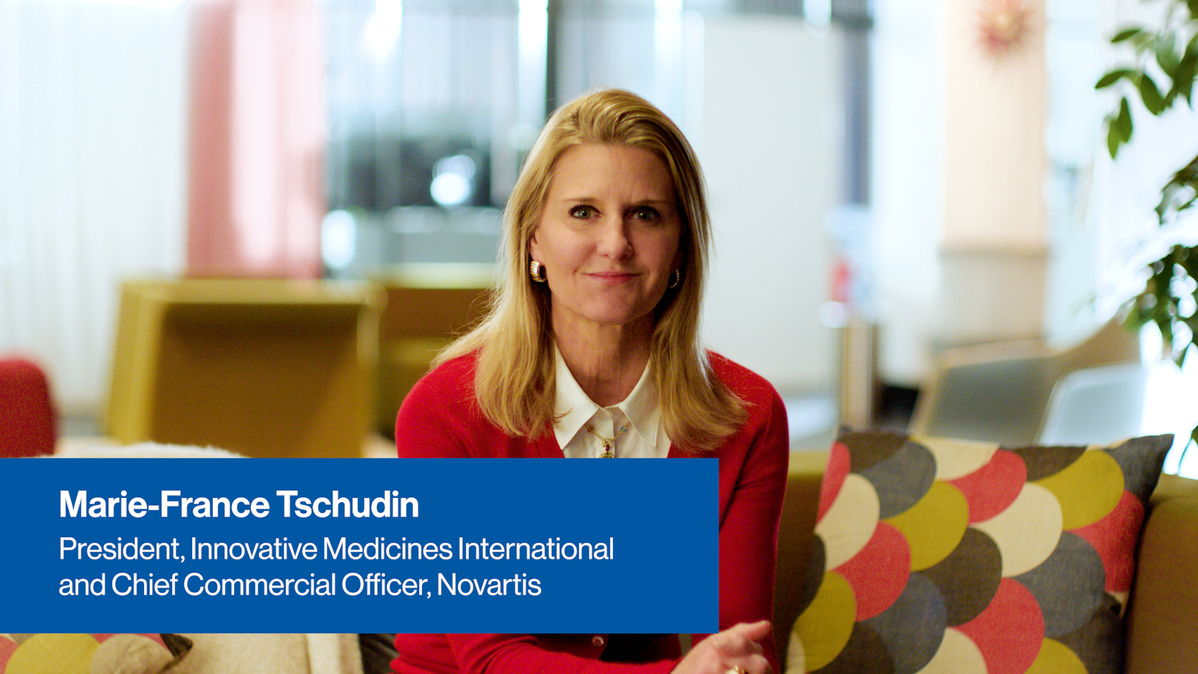Everyone has been touched by cardiovascular diseases (CVDs), be it directly or through knowing someone who has had a heart attack, stroke, thrombosis, pulmonary embolism, or any other disorders of the heart and blood vessels.
I want to get people talking about cardiovascular disease (CVD), the leading cause of death and disability in the world!
Marie-France Tschudin, President, Innovative Medicines International & Chief Commercial Officer

More than 18 million people die of CVD every year. It is the leading cause of death globally.1,2 In fact, CVD claims more lives than all cancers combined, and a staggering 34 people will have died from a heart attack or stroke in the last 60 seconds alone.3 Atherosclerotic cardiovascular disease (ASCVD) accounts for approximately 85% of these deaths.1
ASCVD is an umbrella term used to describe a variety of diseases that are caused by the build-up of fatty deposits - or plaque - in arteries.4
Many people do not experience any symptoms until the plaque in the arteries unexpectedly ruptures. This may lead to a heart attack or stroke.4


What’s shocking is that 80% of premature heart disease and strokes are preventable.5 Marie-France Tschudin, President, Innovative Medicines International & Chief Commercial Officer, wanted to explore why this is still the reality for so many people and how we can tackle one of the world’s biggest healthcare challenges.







